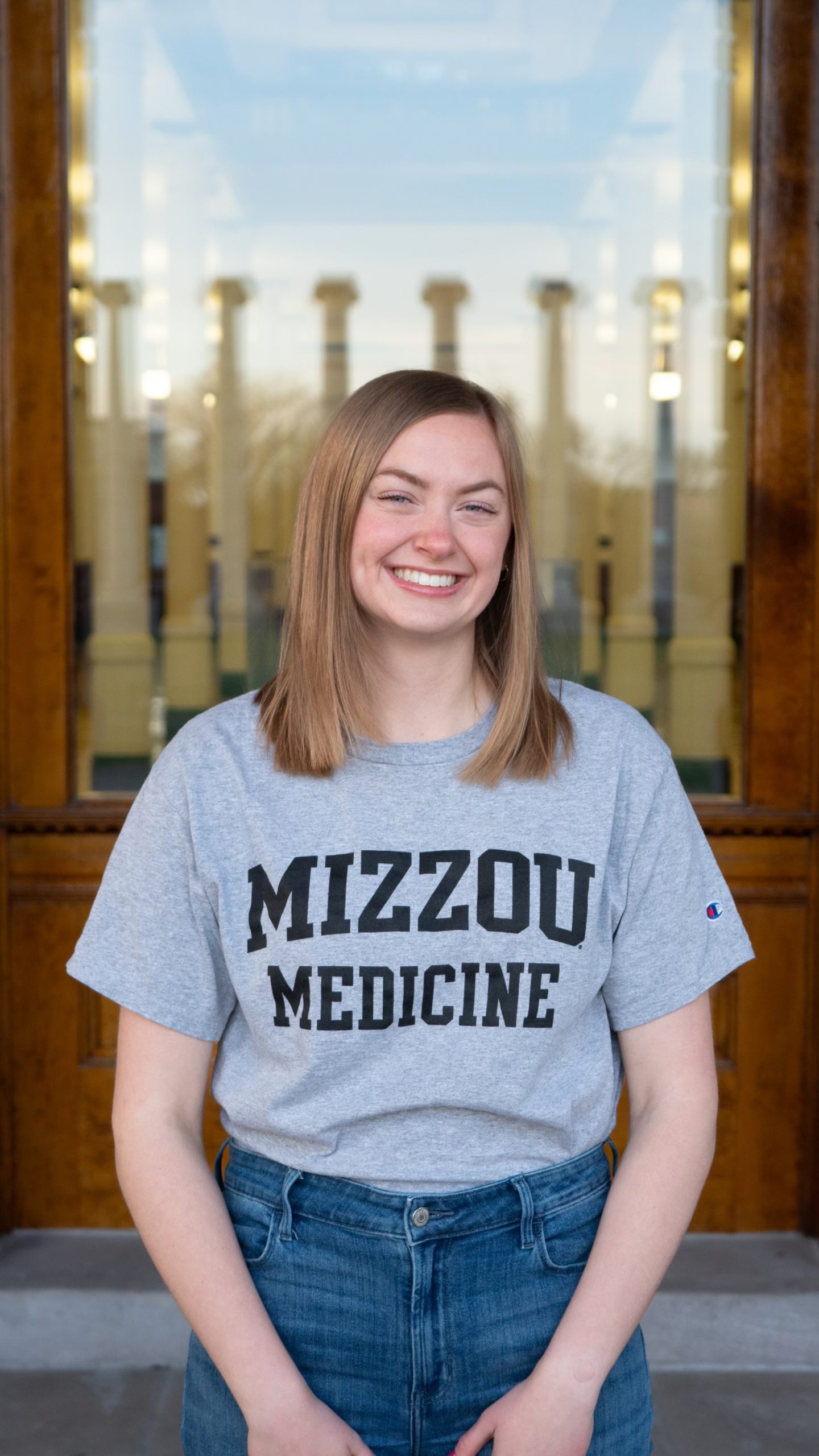
Q: Why did you choose to come to the University of Missouri?
A: I chose to come to the University of Missouri because of the numerous hands-on opportunities and the biochemistry degree program. I was particularly interested in gaining undergraduate research experience, and Mizzou’s status as an R1 institution made me excited to find a mentor and begin!
Q: Why did you choose to pursue your degree?
A: I have always enjoyed learning science, especially about biological mechanisms and the four major macromolecules. I chose to major in biochemistry because I wanted to dive further into these interests and challenge myself academically. Through CAFNR, I knew my smaller class sizes would allow me to form more close-knit relationships with professors and peers, which is something I prioritized in high school.
Q: Did you partake in any research, study abroad, or internship opportunities? What did you enjoy about those experiences?
A: I assisted in an Alzheimer’s Disease research lab at NextGen Precision Health under the guidance of Ai-Ling Lin. We are investigating the promising use of a pharmaceutical treatment to prevent the onset of Alzheimer’s-related dementia through clinical trials. I found applying what I had learned in the classroom to a prominent real-world scenario to be fascinating.
This past January, I had the opportunity to complete a two week study abroad trip in Peru. The program consisted of daily service and various excursions around Cusco. I was able to practice Spanish in an everyday setting, conversing with those at my volunteer site and beyond. My favorite part of the trip was visiting one of the Wonders of the World, Machu Picchu!
Q: What is a favorite memory you have during your time in CAFNR?
A: My favorite CAFNR memory has to be attending the 2023 Kansas State football game in the Chancellor’s Suite for Mizzou Ag Day. While I had the chance to network with agricultural and scientific professionals, storming the field and kissing the 50 with other CAFNR student leaders was unforgettable!
Q: How did your degree program prepare you for the future?
A: The core courses in the Biochemistry degree provide meaningful opportunities to engage in critical thinking and problem solving. Students are encouraged to make connections across disciplines, synthesizing information from a breadth of scientific coursework. This degree equips students with the scientific foundation necessary for various professional and graduate studies.
Q: What are your future plans?
A: I will be attending medical school at the University of Missouri-Columbia!